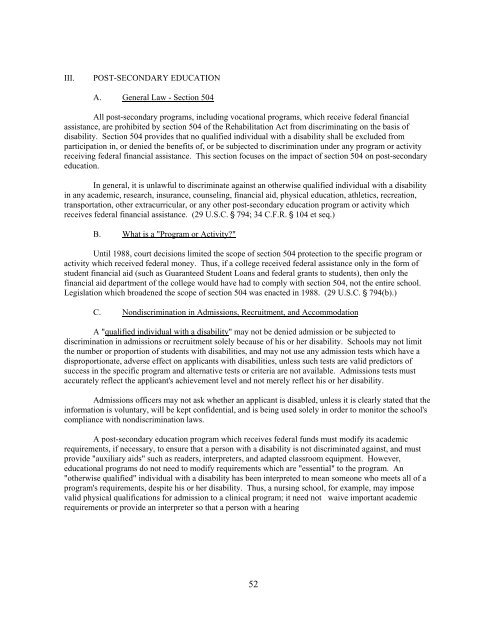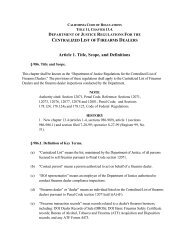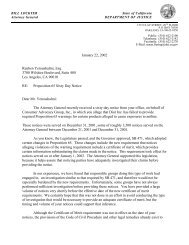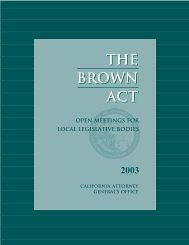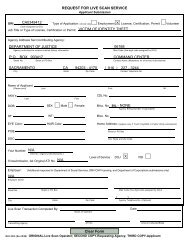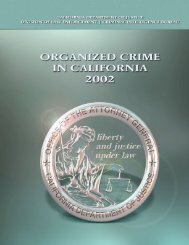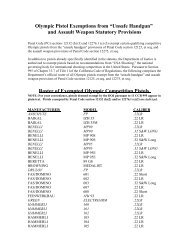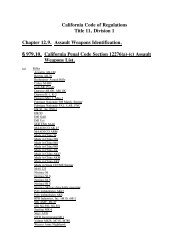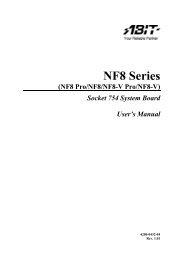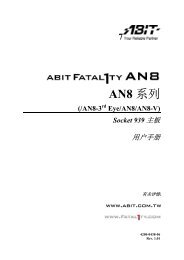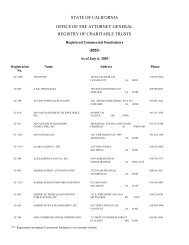Legal Rights of Persons With Disabilities - Ossh.com
Legal Rights of Persons With Disabilities - Ossh.com
Legal Rights of Persons With Disabilities - Ossh.com
You also want an ePaper? Increase the reach of your titles
YUMPU automatically turns print PDFs into web optimized ePapers that Google loves.
III.<br />
POST-SECONDARY EDUCATION<br />
A. General Law - Section 504<br />
All post-secondary programs, including vocational programs, which receive federal financial<br />
assistance, are prohibited by section 504 <strong>of</strong> the Rehabilitation Act from discriminating on the basis <strong>of</strong><br />
disability. Section 504 provides that no qualified individual with a disability shall be excluded from<br />
participation in, or denied the benefits <strong>of</strong>, or be subjected to discrimination under any program or activity<br />
receiving federal financial assistance. This section focuses on the impact <strong>of</strong> section 504 on post-secondary<br />
education.<br />
In general, it is unlawful to discriminate against an otherwise qualified individual with a disability<br />
in any academic, research, insurance, counseling, financial aid, physical education, athletics, recreation,<br />
transportation, other extracurricular, or any other post-secondary education program or activity which<br />
receives federal financial assistance. (29 U.S.C. ' 794; 34 C.F.R. ' 104 et seq.)<br />
B. What is a "Program or Activity"<br />
Until 1988, court decisions limited the scope <strong>of</strong> section 504 protection to the specific program or<br />
activity which received federal money. Thus, if a college received federal assistance only in the form <strong>of</strong><br />
student financial aid (such as Guaranteed Student Loans and federal grants to students), then only the<br />
financial aid department <strong>of</strong> the college would have had to <strong>com</strong>ply with section 504, not the entire school.<br />
Legislation which broadened the scope <strong>of</strong> section 504 was enacted in 1988. (29 U.S.C. ' 794(b).)<br />
C. Nondiscrimination in Admissions, Recruitment, and Ac<strong>com</strong>modation<br />
A "qualified individual with a disability" may not be denied admission or be subjected to<br />
discrimination in admissions or recruitment solely because <strong>of</strong> his or her disability. Schools may not limit<br />
the number or proportion <strong>of</strong> students with disabilities, and may not use any admission tests which have a<br />
disproportionate, adverse effect on applicants with disabilities, unless such tests are valid predictors <strong>of</strong><br />
success in the specific program and alternative tests or criteria are not available. Admissions tests must<br />
accurately reflect the applicant's achievement level and not merely reflect his or her disability.<br />
Admissions <strong>of</strong>ficers may not ask whether an applicant is disabled, unless it is clearly stated that the<br />
information is voluntary, will be kept confidential, and is being used solely in order to monitor the school's<br />
<strong>com</strong>pliance with nondiscrimination laws.<br />
A post-secondary education program which receives federal funds must modify its academic<br />
requirements, if necessary, to ensure that a person with a disability is not discriminated against, and must<br />
provide "auxiliary aids" such as readers, interpreters, and adapted classroom equipment. However,<br />
educational programs do not need to modify requirements which are "essential" to the program. An<br />
"otherwise qualified" individual with a disability has been interpreted to mean someone who meets all <strong>of</strong> a<br />
program's requirements, despite his or her disability. Thus, a nursing school, for example, may impose<br />
valid physical qualifications for admission to a clinical program; it need not waive important academic<br />
requirements or provide an interpreter so that a person with a hearing<br />
52


